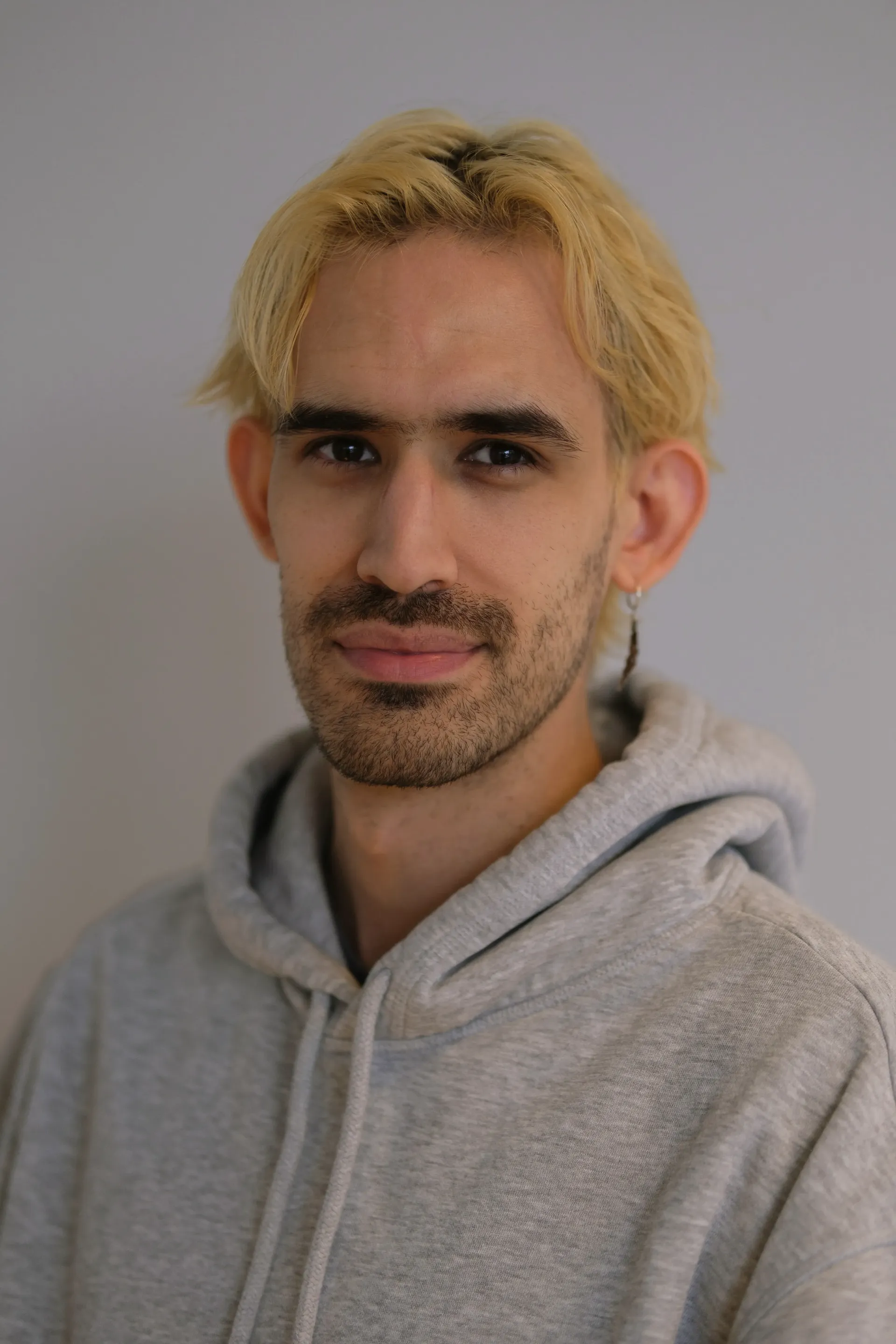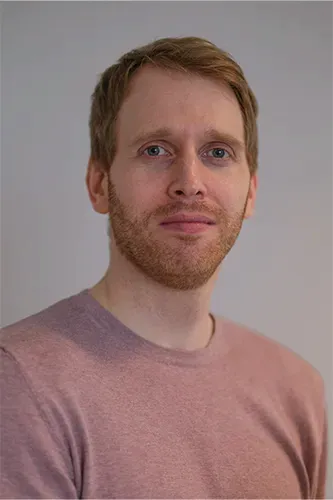“Over the last decades, it has become more recognized that it is possible to make a career in the gaming industry. That is cool”, says Ricardo Rivera (29) from Mexico, and presses a button on the game controller.
We are in the middle of a lecture in the new postgraduate course Game Studies at the Department of Media and Communication (IMK), and it is Ricardo's turn to test the game chosen by lecturer Joakim Johansen Østby for today's analysis.
Offered every spring semester

The course was offered for the first time in spring 2023 and will run every spring semester. It is taught in English and many of the students are international students.
The new postgraduate course was a great fit for Ricardo.
“It was perfect for my master's thesis and has helped me a lot in finding relevant research”, he says.
Creating small communities
Game studies have become a recognized field of research within media studies. The focus is on video games as technological, aesthetic, and cultural works, and gaming as a social and creative practice.
Ricardo is writing a master's thesis on game culture.
“I have always been interested in how we create small communities in connection with video games and social media”, he says.
He is gaming with friends back home in Mexico daily.
“We could also talk on the phone, but this is our way of being together. We talk about life while we play”, he says.

A critical approach to games
In the Game Studies course, students learn to critically read and discuss research, to use research to analyse and discuss various aspects of video games, and to propose new ideas, improvements, and solutions.
Senior lecturer Joakim Johansen Østby wanted to create a course that offered students an academic approach to video games.
“This fills a gap that an education in the design and development of games do not cover”, he says.
As part of the course, students write essays and practice presenting academic knowledge about video games to a general audience. This way, Østby wants to prepare them for working life.
In the long run, he also hopes it will improve the public discourse on games.
“Society needs a more critical and informed journalism about games. I hope our students can contribute to this in the future”, he says.
Requires knowledge in the field of humanities
During their course, the postgraduate students visit Funcom, an independent developer and publisher of games, and the first and largest company to develop such games in Norway.

Fredrik Martol is Head of Studio at Funcom’s main office in Oslo and talked to the students about how games are developed and what skills companies need.
Martol thinks the gaming industry needs more candidates from the field of humanities.
“Humanities students are very interesting and important to us as game developers. Video games are about storytelling, dramaturgy, and communication. The degree of credibility in these stories often depends on knowledge and understanding”, he says.
Contributes to credible universes
The content of video games often spans the range of literature, music, history, philosophy, and societal knowledge.
Martol says the gaming industry is not so young anymore, and customers are picky. This implies that they expect high quality, authenticity, and compliance in every aspect of the game.
“Therefore, there is a need for people who understand and can interpret society and the stories we create. We need knowledge about the world we live in and the people in it to recreate the world digitally, or to create alternative, but credible universes”, he says.
Gaming is culture
Ricardo would love to work in a company like Funcom when he finishes his studies.
“I want to understand more of what gaming culture is like and how it is changing, and I am passionate about creating engaging content that people want to see. It shouldn't just be about making money”, he says.
On the screen in the background, his character dies for the third time. The practical teaching is over, and the students will write an analysis of the game they have just tested.
Ricardo puts down the game controller and picks up a pen.
“Gaming is culture and is fundamentally about creating communities between people with similar values. It is about human encounters and about creating societies. In other words, humanities professionals have a lot to contribute», he says.
